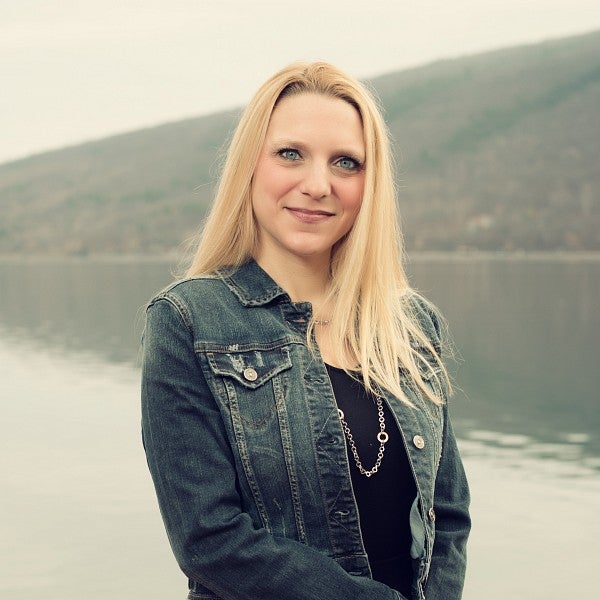THOMAS F. HERMAN AWARD FOR SPECIALIZED PEDAGOGY
Associate Professor of Political Science in the College of Arts and Sciences
“To me, the award is a reminder to continue taking risks and pushing myself out of my comfort zone as a teacher even when things return to 'normal.'"
Classes with Beck

PS 111
Introduction to Political Science
PS 330
Introduction to Latin American Governments and Politics
PS 380
Gender Politics in Developing Countries
PS 607
Seminar in Social Movements
PS 628
States and State-Society Relations
What does this winning this award mean to you?
It feels a bit humbling! In the context of the pandemic and the quick transition to online and remote teaching, so many people really stepped up – students, graduate employees, and faculty alike – so to be recognized in this way feels all the more meaningful.
I believe that even though it was a really challenging year, it was also one of immense growth for me and for many of my colleagues that will ultimately benefit the students and the university in the long run. To me, the award is a reminder to continue taking risks and pushing myself out of my comfort zone as a teacher.
If you received this award on stage at a ceremony like the Oscars or the Grammys, what would you say?
My biggest thanks would go to my students, many of whom overcame a lot of obstacles this past year – from balancing classes and work at home, to dealing with personal and familial losses, and struggling with stress and isolation.
I would also extend my sincere appreciation to the rockstar graduate employees who worked with me this year. They made extra efforts to make meaningful connections with students and gave me valuable insights into what was working and what needed tweaking, all while juggling their own classes and personal struggles and obligations. I cannot imagine surviving teaching this past year without them.
How would you describe what you do (i.e. teaching, research, etc.) to someone outside of the UO?
Teaching is often the most understandable part of my job for people outside of academia, but as we all know it’s only part of what we do. The research side is about generating new knowledge and the teaching side is about communicating and reflecting on that knowledge with students.
What was your favorite class or subject in high school? College?
In college I completed an independent study with my favorite economics professor in which I explored the role of women and gender in economic development. Professor MaryJane Lenon basically gave me free rein to develop the course’s reading list and challenged me to take an interdisciplinary approach to the topic. That experience ultimately informed my decision to go to graduate school, where I wrote a dissertation on development projects aimed at helping poor women in Guatemala. That dissertation, in turn, became the foundation for my book, How Development Projects Persist: Everyday Negotiations with Guatemalan NGOs.
After the book came out, I sent Prof. Lenon a copy of the book and she got a kick out of where the project ended up. It just goes to show that sometimes your interactions with students can have lasting impacts that you don’t fully realize until well after the fact.
What’s the most inspiring classroom moment you’ve experienced, either as a student or a teacher?
In my class, Gender Politics in Developing Countries, our discussions of gender politics in other countries often sparks students to reflect on gender politics in the US. Soon after Dr. Christine Blasey Ford’s testified about her experiences of sexual assault to the Senate Judiciary Committee, in PS380 we were discussing sexual assault and violence against women in India. In the context of discussing the barriers to reporting violence in India that appeared in the assigned material, a student raised his hand and asked, with what seemed like genuine confusion, about why a woman in the U.S. would wait months or longer to report an experience of sexual assault.
My stomach dropped a bit as I felt the weight of the question. Thankfully, we had spent the term up until that point cultivating an open, collaborative, and trusting space. After a moment of silence, I turned the question back to the class to ask what were some barriers to reporting sexual violence identified in the Indian case that might also apply to the U.S. case. What followed was one of the most open and moving conversations I have witnessed among students – a number of young women shared the strategies they took to avoid assault and reflected on the many factors that might make them reluctant to report an assault. I saw the young man who asked the original question, and a number of the other students in the class, really impacted by these responses and realized that the information meant more coming from their peers than it ever would coming from me. I walked out of the classroom feeling so incredibly grateful for those students who trusted me and their classmates enough to speak so openly about topics that were all too often hidden away.
What are you listening to right now OR what is your favorite music to put on?
Lately when I’ve needed a burst of energy I’ve been listening to the Alabama Shakes.
Where can you be found when you’re not in the classroom (or in front of your computer on Zoom!)?
Outside and with dogs whenever possible! I have two pups of my own, a great Dane named Taco and a pit bull named Kimchi (I guess I have a thing for naming dogs after hipster foods) and also foster dogs from time to time. I am on the board of an amazing Eugene-based dog rescue, Northwest Dog Project, and love spending my non-working time supporting its efforts and hanging with my fellow “dog people.”

